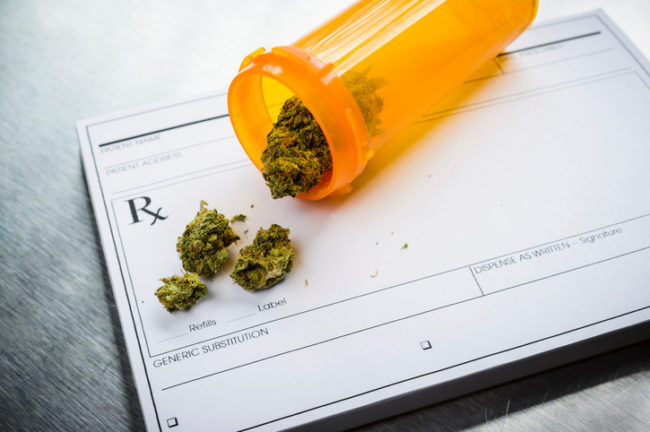In 2013 NFL running back Mike James was playing for the Tampa Bay Buccaneers on Monday Night Football. During the opening drive of the game, James broke his ankle after an opposing player fell on his foot, causing his ankle to be twisted awkwardly. James was rolling on the ground in excoriating pain and was later carted off the field with a left ankle injury. Surgery, a metal rod, and medal wires were needed to repair his ankle, and after the surgery, James was given several prescriptions for opioid painkillers. According to James, he was not worried about the potential additive effects of the painkiller because he was receiving the pills “from a doctor.” However, James quickly developed a dangerous dependency on the drugs, at one point James took two-dozen opioid painkillers a day. Aubrey James, James’ wife, became concerned about her husband’s opioid painkiller dependency. As an alternative, Aubrey suggested that James try medical marijuana to relive his pain. Suddenly, “my pain subsided,” James said in an interview. He continued, “I never had something where I could be coherent and still have pain relief.” While James still experiences pain, he is not yet ready to walk away from his NFL career.
Currently, James is a NFL free agent, but the NFL and NFL Players Association prohibit active players from using marijuana as part of the NFL’s policy on substance abuse. The only way that James could play, while still managing his pain with medical marijuana, is if James has a therapeutic use exemption (TUE). A TUE is an exam that determines if a player requires a specific substance, in this case marijuana, to treat a diagnosed medical condition. In March 2018, James became the first NFL player to file for a TUE specifically for marijuana; however, the league denied his request. According to James, “By them denying me a TUE, they’re really giving me no other options to continue playing football . . . to be able to play this violent game and deal with my chronic pain, I need an option for that.”
As it stands, eight states have legalized recreational use of marijuana and 21 have legalized medical marijuana; however, the NFL has shown few signs of relaxing its rules on marijuana and has yet to officially comment on its denial of James’ TUE request. NFL Commissioner, Roger Goodell, said NFL experts have been studying the issue of medical marijuana, but “to date, they haven’t said, ‘This is a change we think you should make that is in the best interest of the health and safety of our players.’” James made his TUE request hoping to change the NFL’s position on medical marijuana. In the process, he hopes to give fellow NFL players a safer alternative to opioids. In 2011, a study showed that 52 percent of former NFL players used opioids during their NFL career and 71 percent reported misusing the opioids.
It is likely that the conversation surrounding medical marijuana and the NFL will continue especially considering both medical marijuana and the opioid endemic have become nationwide political discussions.

